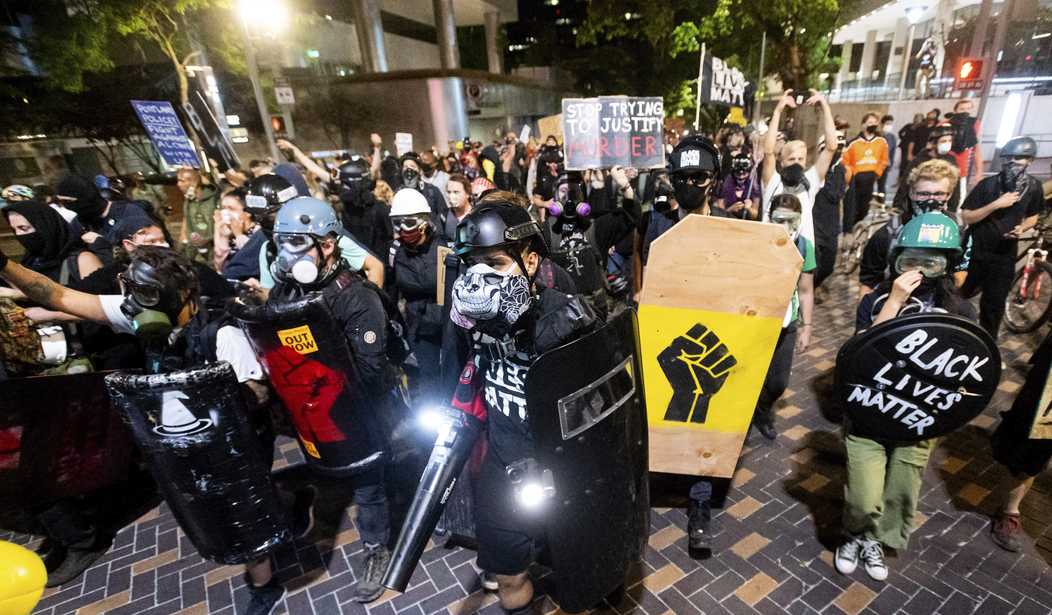I know you’ll be shocked to hear this but voters in the city which saw a string of nightly riots, beatings and even a murder by an Antifa mob over the past 18 months feels quality of life is on the decline. An annual survey of registered voters in Portland and the surrounding area funded by the Portland Business Alliance found 88% of respondents felt that way. The poll also included a right-track, wrong-track question which found that nearly 3/4 of respondents in Portland felt the city was going in the wrong direction.
Voters who think the region is off on the wrong track (62%) far exceed those who say it’s heading in the right direction (16%), with negativity even higher in Portland (76%) than in the rest of the tri-county area (53%). These negative perceptions have grown considerably. In January 2020, just 28% of voters felt the region was headed in the wrong direction. Outlook on quality of life also follows a similar trend, with nine in ten voters (88%) regionwide now saying quality of life is getting worse compared to roughly half of voters (49%) expressing such a negative outlook in January 2020.
Antifa is never mentioned in the poll, but what is mentioned as the top concern of most respondents is homelessness. Portland, like other cities on the west coast, has experienced a spike in homelessness and the problems associated with it. For instance, a 2019 survey of public data found that Portland’s fire department was responding to an average of two fires per day in homeless camps. Concern about crime is also up.
In response to an open-ended question, nearly one in two voters (45%) in the region say that homelessness is the biggest issue facing our area at this time, up from 24% of voters in 2017 who cited it as the top issue. One in four voters (24%) now say crime is the biggest issue, up from merely 1% as late as January 2020. Intensifying concerns about homelessness and surging concerns about crime appear to be at the root of voter frustration with the direction of the region and are clearly impacting the public’s sense of safety.
And perhaps most surprising outcome from this poll is that overwhelming majorities of respondents from every demographic agree that the homeless should not be allowed to camp on sidewalks and under bridges. Instead, they should be forced to sleep in shelters.
Roughly eight in ten voters (83%) in the region support requiring people who are currently living outside to sleep in shelters or designated camping locations, including 79% of Portland voters and 86% of voters in the remaining tri-county area. Strong support for this proposal is shared by groups who might otherwise disagree on policy matters. Regardless of age, gender, race, educational attainment, or even political affiliation, a minimum of three in four voters in every demographic group supports this proposal to address homelessness.
People are simply tired of the hands-off approach which too often seems to be the default. Portland residents are also firmly in support of additional funding for the police.
Voters throughout the region express overwhelming support for specific proposals to address public safety. These include funding to hire and train new police officers (83%), funding to hire more prosecutors to investigate and prosecute violent crimes (79%), and funding to require police officers to wear body worn cameras (90%). Agreement on these specific issues extends to other issues as well. Within Portland, majorities want an increase in funding for community groups who provide programs to increase public safety (72%) and they also want increases in funding for police (58%), suggesting that most voters do not see these approaches as mutually exclusive.
In other words, even in the city of Portland, voters have rejected “defund the police.” It never made sense that it was necessary to cut police funding in order to fund other priorities. The activist left has now lost this argument in the city that was probably most prone to agree with it.
Finally, it looks like voters haven’t forgotten who was pushing those issues. City Councilwoman Jo Ann Hardesty who has been the loudest proponent of defunding the police is going to be facing a tough reelection. Just 18% of respondents support her while 54% say they are ready to vote for someone else.










Join the conversation as a VIP Member